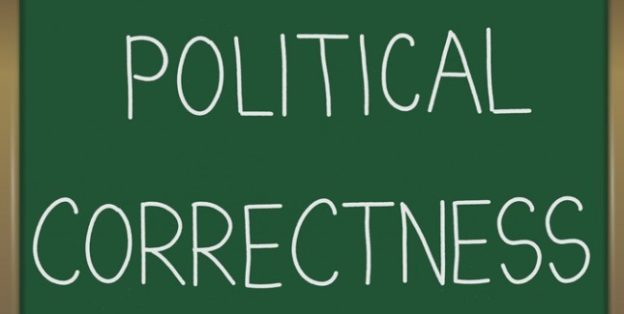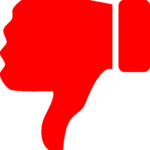And when did respect become political correctness?
Have you ever noticed how people apologise for political correctness or pour scorn on it as somehow it’s something we have to justify. We frequently hear sentences starting with “I know this is politically incorrect but…..” They then go on to say something mildly or even extremely offensive.
Others say that they are simply tired of it and feel it inhibits their right to express themselves freely. They say they “loathe obsessive political correctness.” The reality is that political correctness was politically imposed on us because as individuals and groups we fail to treat all people with respect and dignity they deserve of our accord. We seem to need outside guidelines to be respectful.
Political correctness is defined as:
the avoidance of forms of expression or action that are perceived to exclude, marginalize, or insult groups of people who are socially disadvantaged or discriminated against.
What is happening is that certain layers of our communities look back to a time when they didn’t have to think before they spoke or took action without reflecting on the potential negative impact on others. It might have been at a time when as a dominant group, their life view was the one that prevailed and they could share opinions and use language that was racist, sexist, homophobic, or held prejudicial views against a specific group which was offensive in its nature. We see it now on social media in an extreme form and amongst some leaders who are offensive and abusive. They share their biases and prejudices openly about specific demographics with few, if any, repercussions.
Incivility on the rise
According to research from Christine Porath of Georgetown University incivility is on the rise. There has been an increase of 13% since 1998. She also notes that 66% of these instances of incivility occurred between a manager and an employee. Incivility impacts employee engagement with all the downsides. Two-thirds of those employees who experienced incivility, “intentionally give less to their organization as the result. 25% take it out on the customer.” More than 50% of employee don’t report incivility for fear of repercussions.
The reality is that most organisations don’t realise that their culture might be toxic until their employee engagement survey gives bad news. Most managers would be horrified to find they would be considered to be a toxic boss.
How does workplace incivility manifest itself?
Workplace incivility has been defined as low-intensity deviant behavior with ambiguous intent to harm the target. Uncivil behaviors are characteristically rude and discourteous, displaying a lack of regard for others.”
Here is a check list of areas where incivility and lack of respect can appear in the workplace:
- rudeness – this is complex and can be difficult to define precisely because cross cultural differences have to be factored in as well as personal levels of tolerance and bias. It can be conveyed in writing, verbally and through body language.
- unfairness – playing favorites, inconsistent treatment of colleagues, facilitating gossip, withholding information, exclusion
- poor time keeping – late for meetings or missing deadlines. It implies that you think you are more important than everyone else.
- distracted or not giving full attention. Smart phone usage is rampant in this group. See above.
- interrupting
- talking over someone
- dismissing a colleague’s view-point
- name calling
- attacking the person not the argument
- adopting an either/or position rather than also/and
- use of bad language
- jokes and banter with racist, sexist or comments that belittle a person or a demographic
- invading someone’s personal space
- emoting – yelling, slamming doors, throwing things
- lack of courtesy and good manners. No please or thank yous.
- bullying – this can be verbal, physical or emotional. The result is the employee feels psychologically unsafe in the workplace and is likely to be disengaged with all that implies for business success.
- Exhibiting bias in a way that favours one demographic over an other
Impact on business of incivility
The impact on employee engagement of a lack of political correctness and increased incivility is significant.
- Increased employee turnover
- A high level of employee grievances and complaints.
- Absenteeism and sick leave increased
- Increased customer complaints
- Drop in productivity
- Conflict caused by miscommunication
- Disconnect with leadership
- Resistance to change
- Reduced collaboration
- Reduced innovation
- Low levels of accountability
The very same managers who will think they are thoughtful and decent people will tick many of those boxes you see above. So next time you have negative feedback from your team, or the employee engagement survey gives a lower than expected rating, it’s think long and hard about our own behaviour and whether we are uncivil at a very basic level. Leadership language and behaviour matters and political correctness helps keep us on track. It’s about being mindful of others.
Now might be a good to to apply some political correctness if it doesn’t come naturally and spontaneously.
If you need support with your talent pipeline contact us now.






The recent high-profile ‘first ever’ appointments at global companies have been welcomed worldwide, especially by the women in today’s workforce. Corporate giants appointing a female chief executive officer, chief financial officer or any other senior level executive can be seen as traditionally male-dominated industries taking their first steps away from gender inequality.